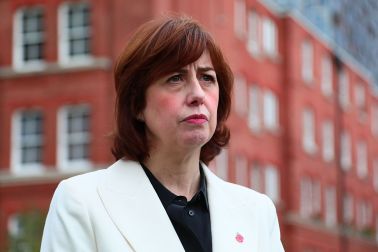The idea that one can take guns and syringes out of the hands of disaffected youths and replace them with musical instruments, which they then delight to play, is so utopian that most people’s reaction was to laugh it off.
The idea that one can take guns and syringes out of the hands of disaffected youths and replace them with musical instruments, which they then delight to play, is so utopian that most people’s reaction was to laugh it off. Yet, as everyone knows, this is exactly what has been happening in Venezuela since 1975, and is still happening. The lives of many young people have been improved by the opportunities offered by El Sistema, and no doubt the mood in society as a whole has been vastly improved. If it really is possible to make this substitution, why wouldn’t it have?
What we in the UK know of this initiative has come in the form of the Simón Bolívar Youth Orchestra, which appeared at the Proms in 2007 and came back last year for a five-day residency at the South Bank Centre under its director Gustavo Dudamel, playing to an audience of 60,000. It is of course worth remembering that this orchestra is the tip of the pyramid of talent that the El Sistema project has uncovered, and that it could not exist without the 30 provincial symphony orchestras and 125 youth orchestras that feed it. In turn, these are supported by music schools that together involve 250,000 children in instrumental training programmes at any one time, almost all of them from extremely poor backgrounds.
All this costs money, which the Venezuelan government has been prepared to provide unstintingly, for many years. President Chávez and others before him have been quick to see the publicity advantages of this flagship enterprise, Chávez recently appearing on television to start new offshoots, and to encourage the documentary film industry that has grown up around the El Sistema story. Meanwhile the Inter-American Development Bank has worked out that improvements in school attendance and declines in juvenile delinquency in Venezuela as a result of this musical ‘system’ have been so marked that every dollar invested in it has reaped $1.68 in social dividends.
What can we in the UK learn from this? The quick lesson is that good music can have a healing effect on anyone at any time, rich and poor, and should be deployed to that end as often as possible, and not just to the élite. This is obvious. Nor does it seem to matter what kind of music it is, except to say that for it to have a properly galvanising effect it doesn’t want to be too easy to play. El Sistema has been successful because it has required young people to put their energies into doing something difficult and time-consuming — learning a musical instrument — which wouldn’t work if based in some of the sketchier musical traditions. At this point one notices similarities with the old Soviet athletics programme: single-minded devotion to world-beating excellence. Is this still interesting to us?
Certainly there are very poor people in the UK who would rather be joining a gang that happens to play Mahler symphonies than one which fights in the backstreets. The backstreets here are perhaps a little different from those of Caracas: no one here is quite as poor as they are there, nor are we poor in such numbers. And we like to sing, as Gareth Malone has discovered. The success of his The Choir has been splendidly visible, though there seems to be the constant danger that a national suspicion of being dragooned will undermine what Malone has set up, so that he is constantly having to revisit his foundations in case they have disappeared again. The Venezuelan model has proved very durable by comparison. The same kind of high-publicity out-reach work has been done by LSO St Luke’s in London, where Malone trained; and now, in Lambeth, Norwich and Liverpool, Julian Lloyd Webber has been working with the In Harmony scheme, inspired by the Venezuelan experiment.
All of which brings to mind the electioneering words of Jeremy Hunt, now Secretary of State for Culture, Olympics, Media and Sport. He said that a Conservative government would ensure that ‘every child will have the opportunity to learn a musical instrument; that every child has the chance to learn to sing; that every child is able to receive a solid cultural education’. He went on to say that music makes people more ‘civilised, emotionally literate, self-aware’. Every child to have music lessons? What about the cuts? Where do the instruments come from? I want to believe it might happen, but I don’t. As push becomes shove for Hunt’s colleagues this idea will surely be the first to go straight out of the window. The Prime Minister will tell us we are too poor to have musical instruments, but not poor enough to make the Venezuelan initiative an imperative here. We should all be writing to Mr Hunt very soon, to check up on progress.





Comments